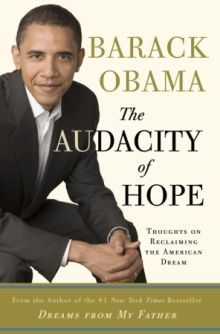Any mainstream US politician would be preferable to Trump. Bernie Sanders. Mitt Romney. Marco Rubio. Rod Blagojevich, disgraced former governor of Illinois, currently serving a 14-year sentence in federal prison. Duke the dog, mayor of Cormorant, Minnesota.
(Maybe not Ted Cruz; he's as extreme as Trump in some ways, and a lot smarter. One to be afraid of in 2020 or 2024.)
As it happens, Trump's opponent is not just any politician; it's Hillary Clinton. If current polling is correct and the fates are not excessively cruel, she will be the forty-fifth President of the United States. What do I think of her?
 |
| Hillary Clinton. Source: Wikimedia Commons |
As a politician, she's... okay. She certainly does not deserve the extreme hatred she inspires, either from the right or the left. The right apparently believe she is like the typical Bond villain, both an evil genius and strangely incompetent. The left denounce her as a neoliberal warmonger, pointing to her vote for the Iraq war, her speaking fees from Wall Street banks, and her generally hawkish reputation as Secretary of State.
Clinton's Iraq war vote was wrong, but it's fair to note that other leading Democrats such as Joe Biden and John Kerry made the same mistake. On the subject of speaking fees, Clinton has accepted six-figure sums to speak to the Association of Scrap Recycling Industries and the Vancouver Board of Trade. She may be a pawn of the scrap metal lobby, as well as the Canadians. (As a Canadian myself, I will indulge in an evil laugh: Muahahaha.)
Seriously though, Clinton is not a socialist revolutionary and has never pretended to be. She is a cautious, calculating politician. It is not her way to try and lead the American public out of its comfort zone. At worst, she has bought into manifestly idiotic policies such as the Iraq war; at best, she has implemented cautious but real reforms.
The Hillary derangement of the right knows no bounds. The only real comparison is the fetid swamp of conspiracy theories surrounding Barack Obama. White men such as Bill Clinton, Al Gore, and John Kerry get their share of opprobrium; but it's fair to say sexism and racism are driving a particular degree of hate.
Perhaps another aspect of the right's hatred is frustration that Clinton is still standing. Like the Terminator, she may be battered and lacerated, but she just... keeps... going.
 |
| Arnold Schwarzenegger might not appreciate the comparison, but there is something Terminator-esque about Hillary Clinton's relentlessness. |
Whatever else you say about Clinton, she is a survivor. In one way or another, she has been at the top level of politics continuously since 1992, a period of twenty-four years.
How many leaders can say that? Some of today's elder statesmen were around in a junior capacity during the early 1990s, but they weren't setting national policy. In a British context, maybe the closest equivalent is Alex Salmond, who became leader of the SNP in 1990 and has played a prominent role in Scottish politics ever since. Like Clinton, Salmond divides opinions, inspiring both devotion and loathing to an unusual degree; but he wasn't actually running a government until 2007.
Hillary Clinton in 1993 was no fringe opposition leader. She was in charge of her husband's flagship policy, overhauling the health care system of the United States of America. She failed at that task.
Those simple facts describe Clinton's first real test in government. I think they still do a lot to explain attitudes towards her.
Clinton's appointment to oversee health care was an act of pure nepotism. At the time she was far from the most qualified person; she had no direct experience of working with Congress, and suddenly had to manage a complex and highly controversial piece of legislation. But Bill trusted her, and so she got the job. If she had succeeded, she might have been forgiven the manner of her appointment; but she didn't.
She was never going to have any friends on the right. The Republicans wanted to destroy the Clintons by any means possible. The failure of health care reform meant she had few friends on the left either.
This isolation was exacerbated by the Clinton administration's strategy of "triangulation", finding a so-called Third Way between left and right. It won Bill's re-election in 1996, but at a high price. The Clintons like to take credit for the healthy economy of the 1990s; but in that case, they deserve a share of the blame for financial deregulation, which paved the way for the crash of 2008.
Later came more humiliations, stoically endured by Hillary. The Kenneth Starr investigation into the Whitewater property dealings failed to uncover any illegal activity, but it did expose the Lewinsky affair and bring about Bill Clinton's impeachment.
It would have broken a lesser individual. As Bill Clinton's presidency wound down, it would have been the easiest thing in the world for Hillary to fade away, and spend the rest of her life doing charitable good works. But with her Senate run in 2000, Clinton showed an appetite for continued public service.
In the United States Senate, seniority matters. Senators spend decades climbing to positions of leadership. As a newcomer, Clinton had to start at the bottom. She did so without complaint, and by all accounts worked hard to master the detail of procedure, policy and legislation. The Hillary haters on the left should note that DW-Nominate ranked her as the 11th most liberal member of the Senate, more so than Joe Biden and Barack Obama. After her primary defeat by Obama, she served as a competent and loyal Secretary of State during his first term, before stepping aside to prepare for her second presidential run.
Overall, Clinton's greatest strengths are her tenacity, mastery of policy detail, and calmness under pressure. These are good qualities to have in a President.
Her greatest weaknesses are a certain lack of vision and audacity; and a deep suspicion of possible enemies, reminiscent of Lyndon Johnson or Richard Nixon, which has given her a tightly controlled and closed-off persona.
Absence of what George HW Bush called "the vision thing" may not be such a great drawback in these times. Barack Obama is the master of visionary speeches, and literally wrote a book on audacity; but the sclerotic US system of government limited him to modest, incremental reforms.
As for suspicion, you're not paranoid if they're really out to get you. Again, a comparison with Obama is instructive. He went out of his way to reach out to Congressional Republicans, with little to no success. Clinton was a keen observer of this process. If she is pessimistic about the chances of bipartisan cooperation, that is a sad commentary on the state of America, but it's hard to argue it is unrealistic.
That is Hillary Clinton, the one and only realistic alternative to Donald Trump. She's a flawed politician, bearing the scars of past conflicts. Unlike Obama, few will mistake her for a prophet about to lead Americans to a land of milk and honey. But she offers steady, thoughtful, competent leadership. In this election above all others, we should not take that for granted.
If Clinton is elected, there will be little of the euphoria that greeted Obama; but I will welcome her with cautious optimism, as well as overwhelming relief that she is not Trump.

No comments:
Post a Comment